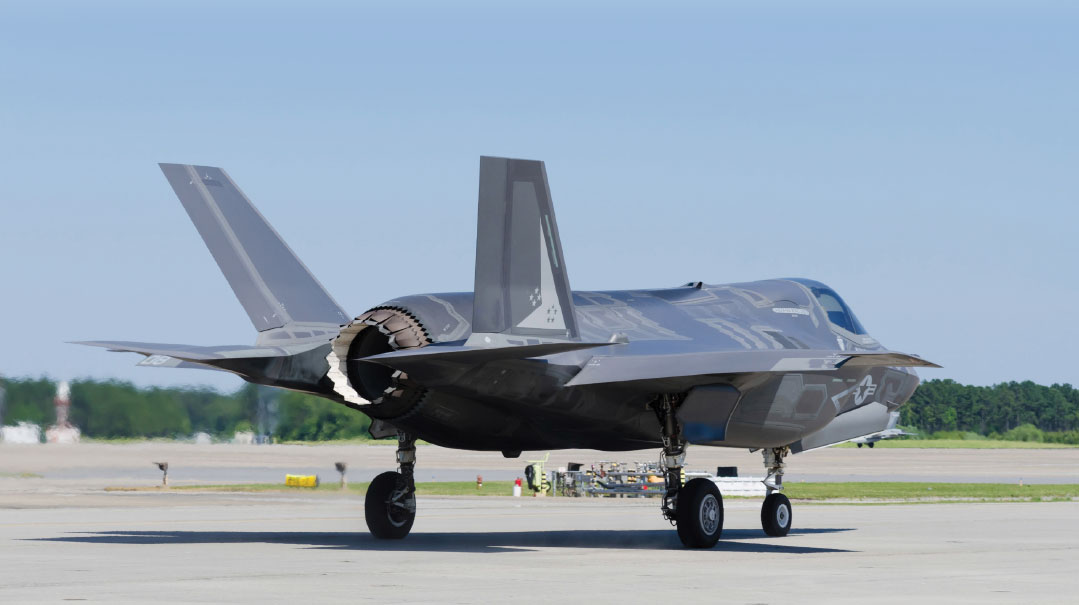Wings of a Dilemma

Does the Trump administration’s proposed sale of F-35 combat jets to the UAE threaten Israel’s military superiority in the Middle East? If so, how and if not, why not?

Does the Trump administration’s proposed sale of F-35 combat jets to the United Arab Emirates (UAE) threaten Israel’s military superiority in the Middle East? If so, how and if not, why not?
What makes the F-35 such a coveted military acquisition?
The F-35 is invisible to radar, allowing pilots to safely penetrate enemy lines and conduct surveillance and reconnaissance undetected. As an offensive weapon, the F-35 is an all-in-one fighter jet, performing air-to-air combat, air-to-ground strikes, and electronic attacks. Israel has already taken delivery of some 14 of the 50 F-35s it plans to buy from Lockheed Martin, the manufacturer.
Has Israel deployed the F-35 on recent military missions against Iranian and Hezbollah interests in Syria and Lebanon?
In May 2018, Israel noted without going into detail that its F-35s had conducted their first combat missions. According to foreign press reports, Israel continues to use the F-35 for a range of missions.
Why does the UAE need the F-35?
Mainly to deter Iran, which doesn’t need nuclear weapons to attack the UAE. The UAE and Iran face each across the narrow Strait of Hormuz waterway, a strategic chokepoint through which one-fifth of the world’s oil is shipped.
The UAE has played a military role in many regional conflicts since its formation as a federation in 1971, most notably joining both the US-led coalition in the 1991 Gulf War and NATO’s coalition in the 2011 Libyan Civil War. The UAE is currently engaged in the battles against ISIS and Islamic insurgents in the Sinai.
Does the UAE pose a threat to Israel?
It’s farfetched to presume that the UAE wants the F-35 to attack Israel. The main concern with the proposed deal is whether such a sale would erode Israel’s qualitative military edge (QME). In 2008, Congress passed a law formalizing America’s longstanding commitment to ensuring that Israel enjoys clear military superiority to deter its larger and unstable neighbors. Israel is currently the only Middle Eastern country to possess the F-35.
Who decides if selling F-35s to the UAE upsets the QME?
That’s a complicated question. By law, the president must inform Congress in advance of any final steps to proceed with such a sale. The law also requires the president to “make a determination” that selling advanced weaponry to another Middle Eastern country does not adversely affect Israel and leaves Israel with “the capacity to address the improved capabilities” of that other country.
But this isn’t a mathematical equation, and the legislation does not provide an exact legal definition of an adverse effect. It can be subjective and up to the president’s discretion. Congress can vote the deal down, but the president can bypass Congress by declaring the sale vital to America’s national security interests. While he must explain exactly what those interests are, again, the president has a lot of wiggle room under the law. And even if the US did agree to compensate Israel for the perceived erosion of its QME, the compensation in question would most likely involve a major political concession from Israel.
Is the proposed sale a “perk” for the UAE agreement to establish diplomatic relations with Israel?
To an extent, yes. However, the UAE’s quest for the F-35 dates back to the Obama administration. On November 4, 2017, Defense News reported that President Trump was then considering the request. Ten days later, Aerospace Daily & Defense Report followed up, saying the deal would be contingent upon UAE commitment to protect sensitive information from the F-35’s onboard “supercomputer” from falling into enemy hands. America should insist on this, but the UAE will pressure the US to sell them “unlocked” F-35s. An international arms deal isn’t like buying vitamins online from Amazon. Lots of geopolitical pieces must fall in place, at the right time, so this is far from a done deal.
Will Israel oppose it? Should Israel oppose it?
Israel must pick its fights carefully. Back in 1981 and 1982, Israel, with AIPAC leading the charge, fought mightily to stop the sale of five Airborne Warning and Control Systems (AWACS) systems to Saudi Arabia, for fear that the sophisticated radar system would hamper Israel’s freedom to patrol Middle Eastern skies. The deal, initially proposed by President Jimmy Carter, also included 62 F-15 fighter aircraft and advanced tanks. When President Reagan replaced Carter in 1981, he applied his fierce political skills to win Congressional approval. In dealing with a determined president, Israel must calculate carefully to what extent, and under what circumstances, it can put up a fight.
At the end of the day, did any harm come to Israel from the Saudi AWACS sale?
Not directly. Saudi Arabia never trained its weapons on Israel, but at times, it has forced Israel out of its comfort zone. In 2003, on the eve of President George W. Bush’s invasion of Iraq, the Saudis transferred some 50 F-15s and AWACS systems to its air force base in Tabuk, a six-minute flight from Eilat, in violation of the purchase agreement. While both the US and Israel consented at the time, thinking it would help protect nearby Jordan, Saudi Arabia never removed the planes, forcing Israel to keep a constant watch on Tabuk.
Also, Israel has learned from bitter experience that not every clause in a deal will stand the test of time. When Israel relinquished the oil fields of the Sinai as part of the peace treaty with Egypt, it was in return for a written US pledge not to deal with the Palestine Liberation Organization. Ten years later, in his last month in office, President Reagan recognized the PLO as the sole representative of the Palestinian people. In the Middle East, nothing is permanent except for conflict.
THE F-35 IN NUMBERS
9 Nations, including Israel, that deploy the F-35 from their home soil
1,200 MPH The F-35’s top speed
460 The number of training hours it takes to fly an F-35
400 billion The number of operations the F-35’s core processor performs per second
(Originally featured in Mishpacha, Issue 825)
Oops! We could not locate your form.












